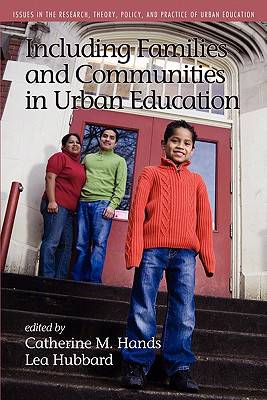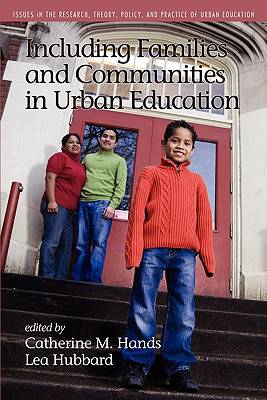
- Afhalen na 1 uur in een winkel met voorraad
- In januari gratis thuislevering in België
- Ruim aanbod met 7 miljoen producten
- Afhalen na 1 uur in een winkel met voorraad
- In januari gratis thuislevering in België
- Ruim aanbod met 7 miljoen producten
Including Families and Communities in Urban Education
Omschrijving
The work of school, family and community partnerships is complex and messy and demands a thoughtful and deep investigation. Currently, parent and community involvement does not draw on school reform and educational change literature and conversely the school change literature often ignores the crucial role that communities play in educational reform. This edited volume focuses on structural considerations regarding education and the school communities, school-level and family culture, and the interrelationships between the agency and actions of school personnel, family members, community citizens and students. This book extends the dialogue on school reform by looking at parent and community engagement initiatives as part of the school reform literature. The contributors illustrate the negative impact on students and their education when assumptions made by school personnel regarding the organization of education, the nature of families, and the contributions they should make to their children's education are not challenged.
Specificaties
Betrokkenen
- Uitgeverij:
Inhoud
- Aantal bladzijden:
- 330
- Taal:
- Engels
- Reeks:
Eigenschappen
- Productcode (EAN):
- 9781617353994
- Verschijningsdatum:
- 16/03/2011
- Uitvoering:
- Paperback
- Formaat:
- Trade paperback (VS)
- Afmetingen:
- 156 mm x 234 mm
- Gewicht:
- 462 g

Alleen bij Standaard Boekhandel
Beoordelingen
We publiceren alleen reviews die voldoen aan de voorwaarden voor reviews. Bekijk onze voorwaarden voor reviews.








